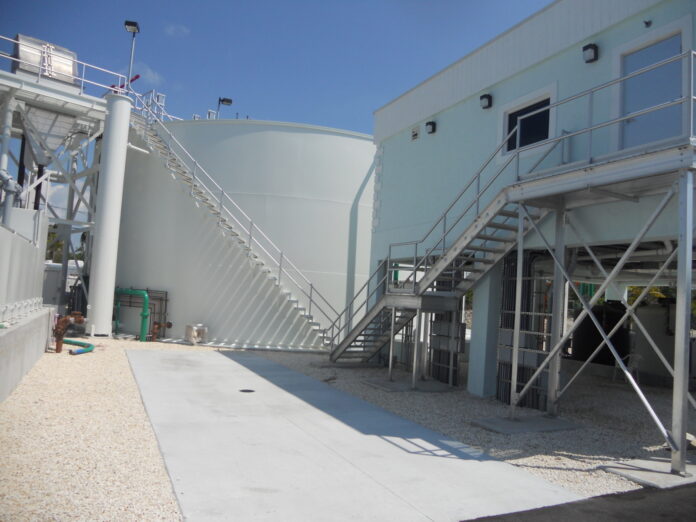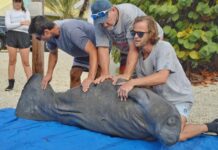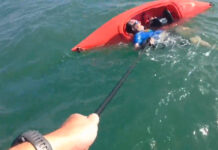
An agreement signed by the Marathon City Council at its Feb. 14 meeting should bring an end to a lawsuit filed against the city just over a year ago by environmental group Friends of the Lower Keys (FOLKs).
In January 2022, the group filed a suit in the Southern U.S. District Court against the city, alleging violations of the Clean Water Act and Endangered Species Act since 2009 and challenging the city’s practice of discharging wastewater in injection wells 60 to 120 feet underground.
The agreement signed by the council prevents further legal action if both Marathon and FOLKs comply with a series of tasks on a precise timeline. A copy of the term sheet provided to Keys Weekly requires the city to hire an engineering firm “which (does not) regularly conduct business with the city” to perform a feasibility study of changes to Marathon’s wastewater disposal protocols by June 20, 2023.
The study must explore any combination of four alternatives outlined in the agreement. The first would use deep well injection, in which each of Marathon’s five wastewater treatment plants would use injection wells that reach more than 2,000 feet underground. The remaining three options explore the use of reverse osmosis technology in water reuse initiatives, including the possibility of providing potable reused water directly to the city or to the Florida Keys Aqueduct Authority.
The study may not include an alternative allowing for continued use of Marathon’s shallow wells as the only or primary disposal method for treated wastewater.
The study must be delivered to FOLKs by Nov. 15, 2023 with the city’s desired alternative, which must be accepted or rejected by FOLKs by Dec. 15, 2023. A subsequent agreement will commit Marathon to its agreed selected alternative under a mutually agreeable completion timeline.
If FOLKs and the city do not agree on a selected alternative, the two will enter mediation. An impasse would allow the pending lawsuit to proceed again.
Though Marathon’s wastewater is treated before discharge, the lawsuit states that porous limestone known as karst around the site of the city’s current injection wells allows polluted water to quickly make its way from the wells to nearshore waters. Effluent plumes are buoyant, causing them to rapidly return to the surface.
A press release issued by FOLKs cited a December 2022 Florida Department of Environmental Protection report that it said showed “Marathon’s close to shore waters remain impaired for nutrients, as they have been since 1999.”
A copy of the report obtained by the Weekly noted that “Vaca Key, Grassy Key and Duck Key are impaired for (dissolved oxygen),” a key indicator of water quality issues, though an additional section states that “DEP has not identified a causative pollutant for the (dissolved oxygen) impairments. … These (locations) include internal residential canals and currently have insufficient nutrient data available to determine a causative pollutant.”
FOLKs’ release also pointed to the work of marine biologist Brian Lapointe, who took water samples and photographs at two locations in shallow waters off Marathon, one on the gulf side and one on the oceanside. Lapointe’s samples were tested for sucralose, an artificial sweetener that remains largely unabsorbed as it passes through humans’ GI tract and therefore serves as a key indicator of sewage effluent in marine waters.
“The concentrations of sucralose on the Atlantic side were higher than any I have ever taken, including those in the highly polluted Indian River Lagoon,” said Lapointe. “(There were) heavy harmful epiphytic algal overgrowths of the benthic communities by pollution indicator species such as the green seaweed Chaetomorpha.”
“(Marathon) won awards because they were the first major municipality in the Keys that went to full-fledged sewering, which was wonderful,” FOLKs spokesperson Ann Olsen told the Weekly. “It’s just that they did it with shallow wells. … Sucralose just unequivocally says that’s human impact.”
“We didn’t sue Marathon lightly,” she added in FOLKs’ release. “It’s been a lot of work and we first tried hard to get Marathon to voluntarily agree. This CWA lawsuit was necessary to effect positive change for the Keys and our waters. We respect the Marathon City Council for ultimately agreeing and settling this case.”

























